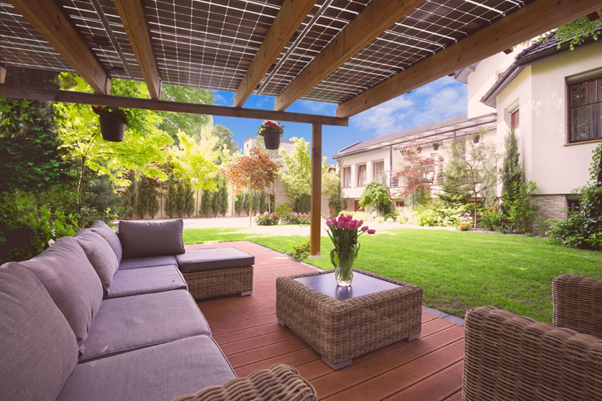Understanding the way solar panels work is crucial to getting the most out of your domestic solar system. Most people assume that because they have purchased a 100-watt solar panel, it will deliver 100 watts of electrical power continuously, which is not always the case.
The actual output from the solar panels will depend on factors like shading, orientation, and sun hours. With a 30-panel system, you will be producing more than enough electricity per year to match all your electricity usage, and maybe more! With solar panels from top solar rooftop companies, your rooftop can generate enough power to run your entire household. Your residential rooftop solar power plants also offer you peace of mind with today’s extreme weather conditions and outdated electrical grids.
Wattage Rating:
The broad selection from various solar energy companies available for domestic solar are not created equal, and not all generate the same amount of power. Solar panels are rated based on the watts they generate. The higher the wattage rating, the greater amount of power your solar installation will produce. Most residential solar panels have power output ratings from 250 to 400 watts, depending on panel size and how well they convert sunlight into energy. While higher power ratings are considered preferable, power output is not the sole factor in judging a solar panel’s performance. Panel efficiency is a better indicator of solar panel performance than just power output for meeting your energy needs.
Factors influencing power generation:
The electricity generated by a solar panel system is ruled by its rated power output. Yet, it is dependent on other factors as well to best serve your energy usage. These include panel efficiency, temperature sensitivity, shading, and the angle of your roof. A roof’s angle, though, has less impact on panel performance than the direction it faces. Top production occurs when solar panels face south with a tilt angle of 30° to 45°.5. Additionally, available sunlight varies by location which further affects the amount of energy you produce.
Factors to consider while trying to maximize your solar power for home:
- Amount of shaded area on the solar panels
- Angle of panel installation
- Cleaning your solar panels to ensure dust or debris does not block the incident sunlight.
- Checking your inverter and all other components
- Regular check-ups and maintenance of your home solar power system.



